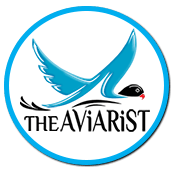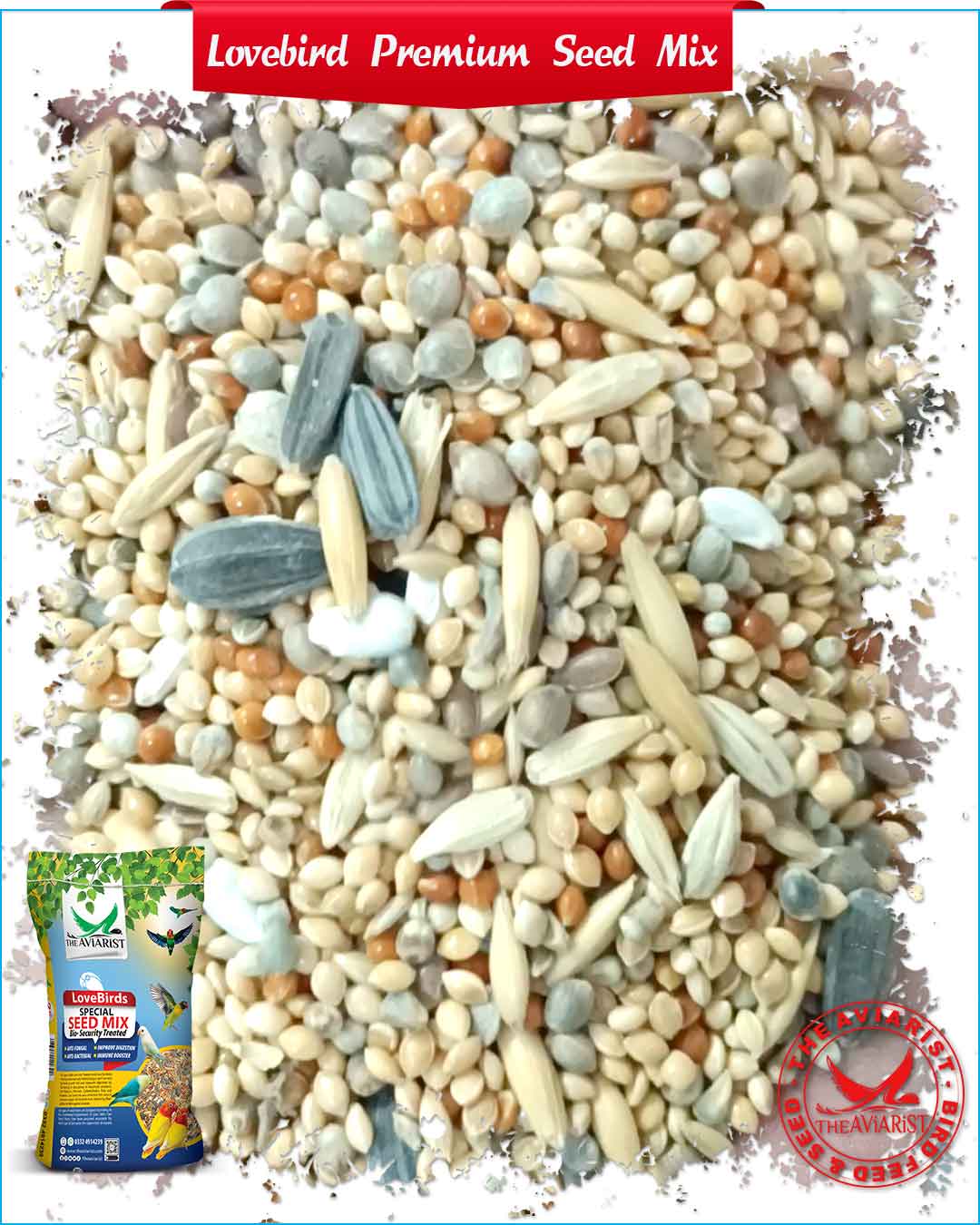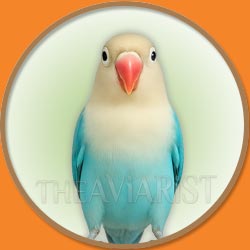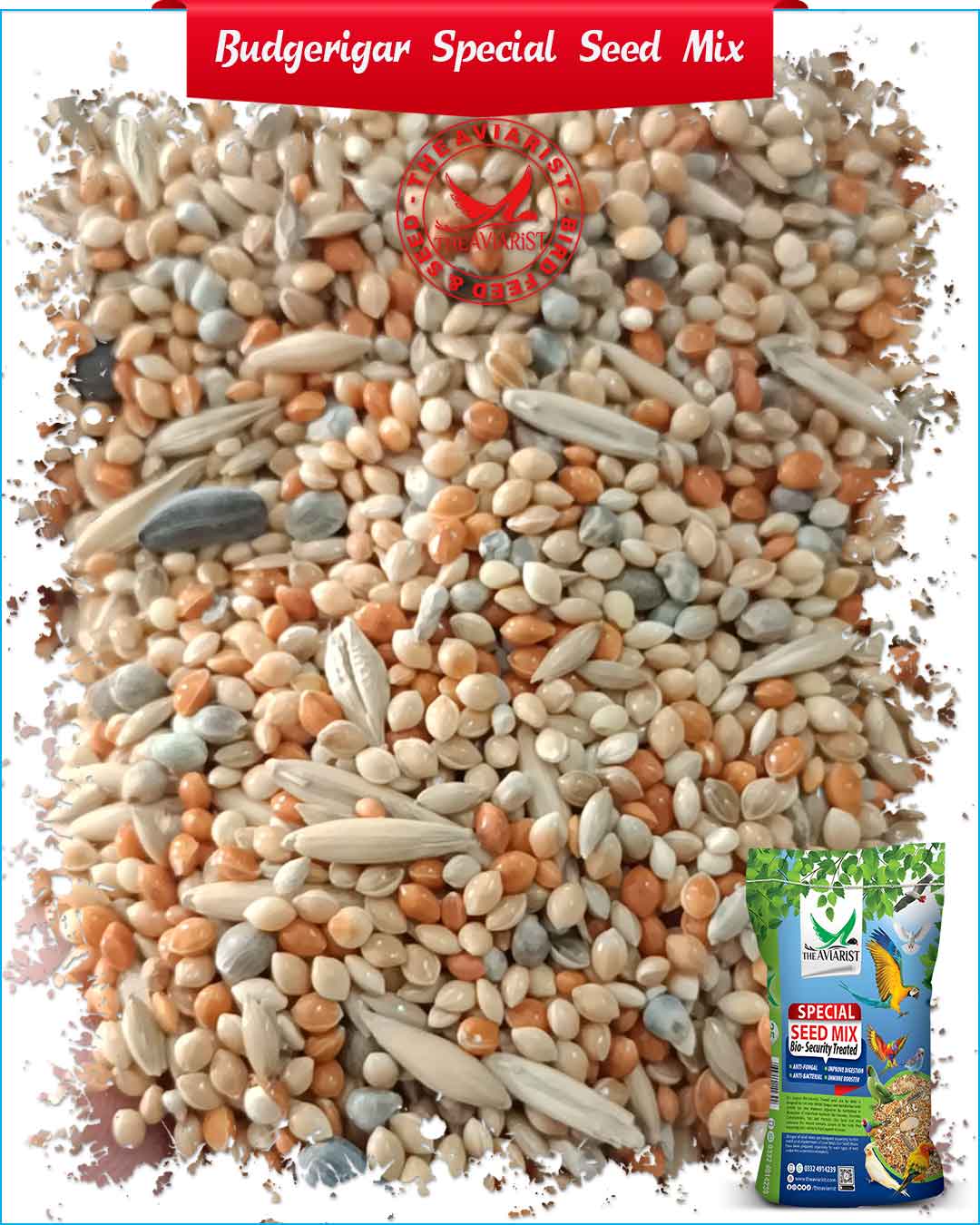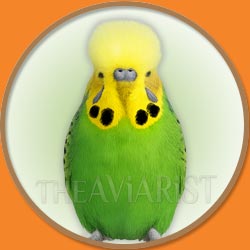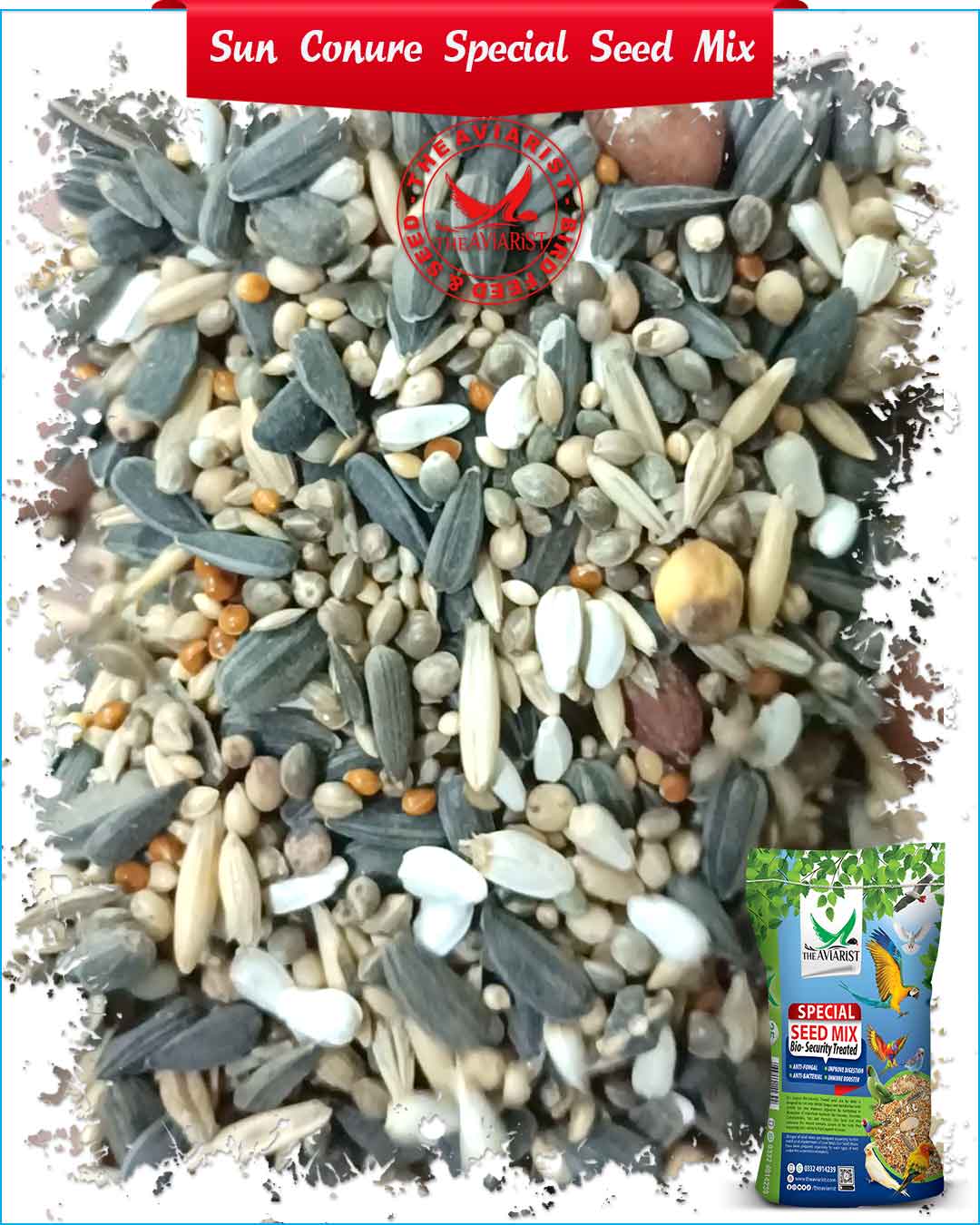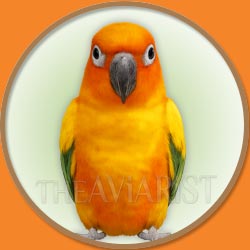Canary Bird
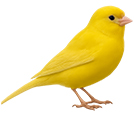
The Canary Bird (Serinus canaria domestica), often simply called the Canary, is one of the most beloved small songbirds in aviculture. Originating from the Canary Islands, Azores, and Madeira, this charming bird has been selectively bred for centuries, prized for its beautiful singing, vibrant colors, and lively personality. Canaries are admired by hobbyists and breeders worldwide for their elegance, gentle nature, and ease of care.
They are admired for their bright plumage, which ranges from the classic yellow to orange, red, white, and variegated patterns, depending on the breed. Male canaries are especially famous for their melodious singing, which has made them highly desirable as household companions for generations. Beyond their beauty and charm, canaries have also played a historical role in safety, once used in coal mines to detect toxic gases due to their sensitive respiratory system. Overall, canaries embody a calm yet spirited nature — ideal for bird lovers who enjoy observing beauty, listening to song, and caring for a feathered companion that fills the home with joy and music.
A Complete Nutrition
At The Aviarist, we understand that the health, vitality, and breeding success of Canary Bird depend largely on their diet. Our specially formulated Seed Mix for Canary Bird is bio-security treated, ensures that Canary Bird receive safe, clean, and nutrient-rich food that supports their feather health, energy levels, fertility, and overall wellbeing.
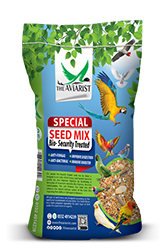
Special Seed Mix
Unlike ordinary seed mixes, our formula goes beyond just filling the seed cup. Every batch is carefully treated and enhanced to support the overall well-being, breeding performance, and immunity of your Canary Bird.
The Special Seed Mix is our core variant, trusted by many breeders. What makes it unique is that, it is regularly adjusted and upgraded according to seasonal changes and breeding requirements.
Tailored nutrition for breeder pairs
Adjusted fat and protein ratios for better breeding outcomes
Ensures strong fertility, better hatch rates, and healthier chicks
This mix is especially beneficial during pre-breeding and general breeding periods.
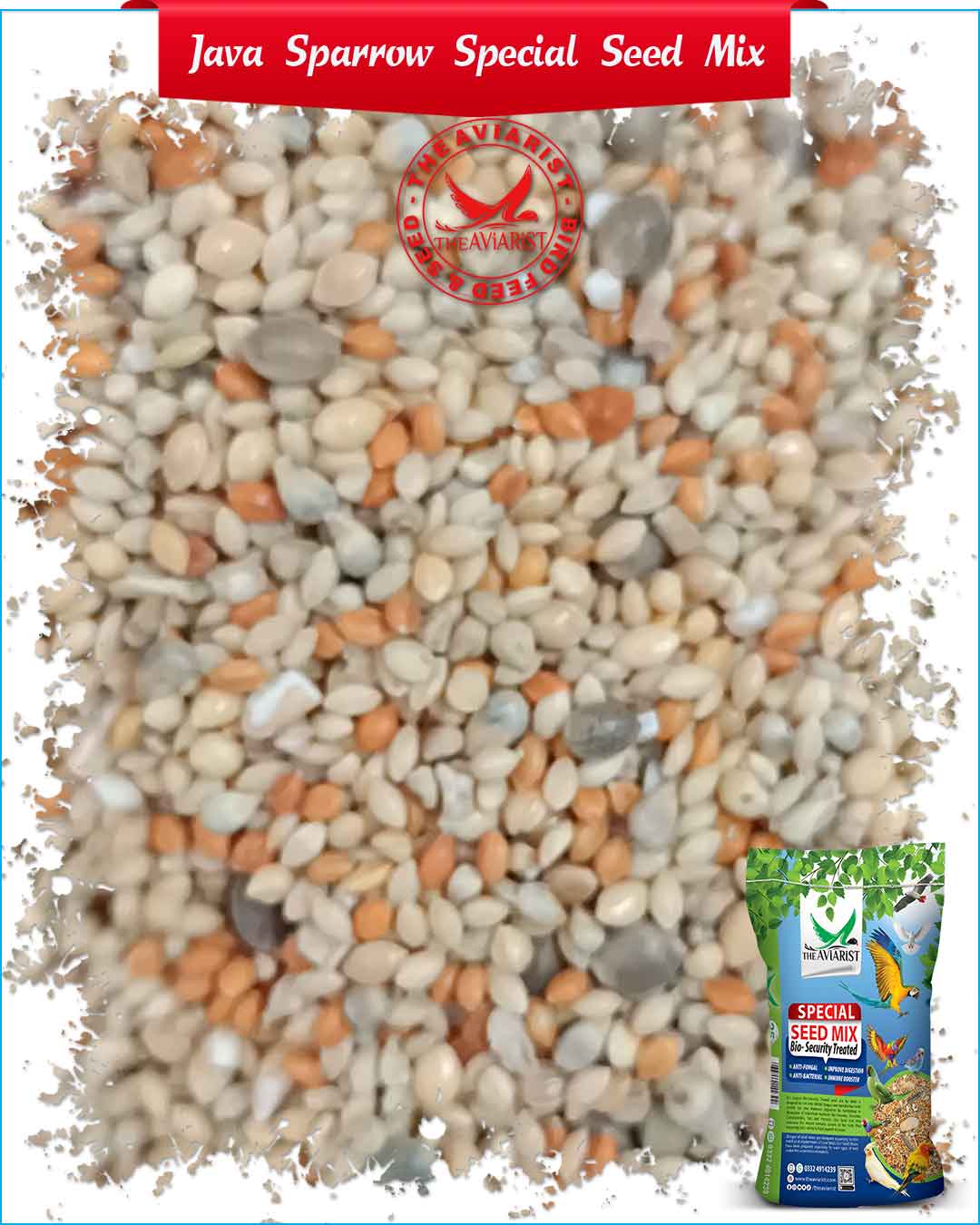
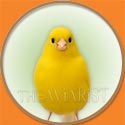
Key Ingredients:
| Ingredient | اجزاء |
| CANARI SEED | کنیری |
| FOXTAIL MILLET | گول کنگنی |
| WHITE MILLET | دیسی کنگنی |
| MUSTARD SEED | سرسوں |
Price Rs.350/Kg
Available in 10Kg & 25Kg Packing
Key Features
1. Bio-Security Treated Seeds
Every seed in our mix undergoes a strict bio-security process. This includes anti-fungal treatment that prevents the growth of harmful fungi such as Aspergillus, which can cause serious respiratory infections in birds. Additionally, the mix is treated to eliminate bad bacteria that often grow in untreated seeds and may lead to digestive or immune-related health problems.
2. Enhanced Digestion
Birds have a delicate digestive system that can sometimes struggle with raw seeds when kept in controled environment. To address this, our seed mix is enriched with special enzymes that aid in the breakdown and absorption of nutrients. These enzymes improve gut health, reduce digestive stress, and maximize nutrient utilization, ensuring that birds get the most from every seed they consume.
3. Immunity-Boosting Formula
A strong immune system is essential for protecting birds against common infections. Our blend is fortified with immunity-enhancing agents that help strengthen their natural defenses. This means your birds are better equipped to fight off seasonal illnesses, bacterial challenges, and environmental stressors.
4. Species-Specific Nutrition
Unlike generic bird seed blends, The Aviarist seed mix is specially crafted for species specific, keeping their natural habitat and dietary patterns in mind. The selected seeds provide the right balance of proteins, healthy fats, vitamins, and minerals that match their natural dietary needs.
Benefits
Healthier Plumage & Brighter Colors
Proper nutrition enhances feather quality, resulting in shinier, stronger, and more vibrant plumage—a sign of a healthy bird.
Boosted Energy & Vitality
With a balanced nutritional profile, birds remain more active, playful, and energetic, reflecting their natural behavior.
Stronger Immunity Against Diseases
The immunity boosting shield protect birds from bacterial and viral threats.
Improved Digestion & Nutrient Absorption
The added enzymes prevent bloating, indigestion, and seed waste, ensuring maximum nutritional benefit.
Longevity & Quality of Life
A safe and nutrient-rich diet contributes to a longer, healthier, and happier life for birds.
Breeding Benefits
Bird breeding requires an optimal diet rich in energy, proteins, and essential micronutrients. The Aviarist Seed Mix is designed to support the breeding cycle in several ways:
Enhanced Fertility in Pairs
Nutrient-rich seeds, combined with immune-boosting agents, improve fertility rates and increase the chances of successful breeding.
Stronger Egg Production
The bio-secure and enzyme-treated formula ensures the hen’s body efficiently absorbs calcium and proteins, leading to stronger, healthier eggs with better hatchability.
Healthy Chick Growth
Parents fed on this seed mix pass on enhanced nutrition to their chicks, ensuring stronger immunity, better feather growth, and healthy development from the very first days.
Reduced Breeding Stress
With improved digestion and higher energy reserves, breeding pairs remain less stressed during mating and chick-rearing, resulting in more consistent breeding success.
Canary Bird
The Songster of the Aviary
The Canary Bird is a small, lively, and melodious songbird that has been cherished by bird enthusiasts for centuries. These birds are admired for their vibrant plumage, sweet temperament, and enchanting singing ability.
These birds have a gentle and active personality, often thriving best when kept singly or in pairs, as males may compete vocally. Canaries are relatively easy to care for, requiring a clean, spacious cage, access to natural light, and a diet rich in high-quality seeds, fresh greens, vegetables, and calcium supplements.
With a lifespan of 8–12 years, and their beauty, variety, and delightful song, the canary remains a symbol of joy and elegance in homes and aviaries worldwide.
Appearance
Canaries are small, slender birds, Typically measuring 4.7–5.5 inches (12–20 cm) in length and weighing around 15–25 grams. Their plumage varies widely due to selective breeding, with the classic bright yellow Canary being the most famous. However, they also come in stunning variations, including red, white, orange, green, and variegated color forms.
Different types of Canaries have been developed through breeding:
- Song Canaries – Bred specifically for their melodic singing ability (e.g., Roller Canary, Waterslager).
- Color Canaries – Selectively bred for vibrant plumage shades.
- Type Canaries – Developed for unique shapes, postures, or feather styles (e.g., Gloster, Crested).
Personalityand Behavior
Canaries are known for their gentle and cheerful temperament. Unlike parrots, they are not typically handled or tamed but are appreciated for their singing and beauty. Male Canaries are the true songbirds, producing sweet and complex melodies, while females generally have softer, simpler calls.
They are active and lively, often seen hopping, flitting, and exploring their cages. Though they enjoy companionship, Canaries are best kept singly for song purposes, as males may sing less in the presence of another male.
The Canary Bird is known for its gentle, cheerful, and lively personality, making it a beloved companion in homes and aviaries. Unlike many parrots, canaries are not typically hands-on or cuddly birds, but they captivate owners with their song, activity, and charm rather than physical interaction.
Males are especially famous for their melodious singing, which they use to attract mates and establish territory. Their song can range from soft and soothing to powerful and elaborate, depending on the breed. Females, while less vocal, often display pleasant chirps and social calls.
Canaries are generally peaceful and non-aggressive, preferring to live quietly in their cages. However, males may show territorial behavior if kept too close to another male, especially during the breeding season. They enjoy flying, hopping, and perching, so providing space for exercise is essential to their well-being.
These birds thrive when placed in a bright, quiet, and stress-free environment, and they are very responsive to sunlight and natural day-night cycles. While they may not bond through touch like parrots, canaries do recognize their caregivers and can grow tame with gentle interaction, often responding to voices and daily routines.
Care and Diet
Canaries are relatively easy to care for, making them a popular choice for both beginners and experienced bird keepers. Their diet should consist of:
- High-quality Canary seed mix (millet, canary grass seed, and other fine seeds).
- Fresh vegetables and greens such as spinach, broccoli, and chickweed.
- Fruits like apple slices or berries (offered in moderation).
- Egg food or soft food during breeding and molting for added protein.
- Cuttlebone or mineral blocks for calcium and beak conditioning.
They require a spacious cage with perches, swings, and enough room to fly short distances. Regular exposure to natural sunlight or full-spectrum lighting helps maintain their health and vibrant plumage. With proper care, Canaries can live 8–12 years.
Canaries in Aviculture
For centuries, Canaries have been treasured as household pets and aviary birds. Their melodious songs, stunning colors, and gentle personalities have made them a cultural icon. Breeders continue to develop new color mutations and song lines, keeping the tradition of Canary keeping alive and flourishing.
Why Choose a Canary Bird?
The Canary Bird is an ideal choice for anyone who appreciates beauty, music, and elegance in their home or aviary. Their enchanting songs, low-maintenance care, and variety of colors make them a timeless favorite among bird lovers worldwide.
Nutritional Requirements
Canary birds require a balanced diet to maintain their vibrant plumage, strong immunity, and melodious song. Their nutritional needs include the right mix of proteins, fats, carbohydrates, vitamins, and minerals. The base of their diet is usually high-quality seed mixes consisting of canary seed, millet, and rapeseed. However, seeds alone can be deficient in certain vitamins and minerals, so supplementation with fresh fruits, leafy greens, and vegetables is essential.
- Protein (12–15%): Vital for feather growth, breeding success, and chick development. Sources include egg food, sprouted seeds, and legumes.
- Fats (4–6%): Provide energy and help maintain healthy skin and feathers. Found in seeds like flax and niger seed, but should be given in moderation.
- Carbohydrates (50–55%): Supply daily energy and are mainly derived from seeds and grains.
- Vitamins: Vitamin A supports vision and immunity, Vitamin D aids calcium absorption (especially important during breeding), and Vitamin E enhances fertility.
- Minerals: Calcium is crucial for bone strength and eggshell formation, while iodine and iron prevent metabolic and blood-related issues.
Water
Fresh, clean water must always be available. Even mild dehydration causes stress, poor digestion, and reduced breeding performance.
Breeding Care
Breeding Canary Birds is a rewarding aspect of aviculture, as these small songbirds are relatively easy to breed with the right care and environment. To achieve success, breeders must focus on pair selection, proper housing, diet, and chick management.
First, only healthy, mature birds (about 9–12 months old) should be selected for breeding. Males are recognized by their strong, continuous singing, while females show nesting behaviors such as shredding paper or seeking secluded spaces. Pairing should be done in early spring, which aligns with their natural breeding season.
Provide a breeding cage or aviary that is spacious enough for both birds, along with a nesting basket or cup lined with safe materials such as soft grasses, cotton fibers, or coconut husk. Females typically lay 3–6 eggs per clutch, with incubation lasting about 13–14 days, during which the female broods while the male often provides food.
Diet is critical for breeding success. In addition to a quality seed mix, breeders should offer egg food, fresh greens, sprouted seeds, calcium supplements, and soft foods to support both egg-laying and chick growth. Fresh water should always be available.
Once hatched, chicks require warmth and are fed by the parents with regurgitated food. By 3 weeks of age, they start feathering and can be banded for identification. Fledging occurs around 4–5 weeks, after which they gradually learn to eat on their own but may continue to be fed by parents for a short period.
To ensure long-term health, breeders should limit pairs to 2–3 clutches per year, giving them rest periods to recover. Cleanliness, minimal stress, and good nutrition are essential throughout the breeding cycle.
With proper care, canaries breed successfully and produce healthy, strong chicks, making them an excellent choice for both hobbyists and commercial aviculturists.
1. Pre-breeding preparation (4–8 weeks before)
- Select birds: healthy, mature (usually 9–12 months old), active singers (males).
- Quarantine & vet check: new birds 30 days; check for parasites, respiratory disease, and general condition.
- Conditioning diet: introduce egg food, sprouted/soaked seeds, fresh greens and a high-quality seed mix or pellets to boost body condition.
- Environment: stable lighting (increase gradually to 12–14 hours daylight), low stress, steady temperature (18–22°C / 64–72°F) .
2. Pairing & bonding
- Introduce gradually: start with cages side-by-side for several days, then supervised shared time.
- Watch interaction: mutual feeding, calm perching and no persistent aggression indicate compatibility. Separate immediately if fighting occurs.
- Single pair per breeding cage is safest to prevent stress and egg destruction.
3. Housing & nesting
- Breeding cage size: minimum 60 × 40 × 40 cm (24 × 16 × 16 in) for a pair; larger or a small aviary is better.
- Nest choice: canary nesting basket / cup or a small wooden nest attached to the cage. Position so birds can enter safely and feel secure.
- Nesting materials: soft grasses, coconut fiber, fine hay, lint—clean and chemical-free. Avoid cotton string and sharp materials.
- Perches & placement: several perches placed away from the nest to avoid soiling and allow flight.
4. Courtship, egg laying & incubation
- Signs of readiness: increased singing, courtship feeding, nest interest.
- Clutch size: typically 3–6 eggs.
- Incubation: 13–14 days (female broods; male usually feeds female and guards).
- Minimize disturbance**—limit nest checks to reduce abandonment risk.
5. Nutrition during breeding & incubation
- Staple diet: quality canary seed mix and/or pellets.
- Breeding supplements: daily egg food, sprouted seeds, mashed vegetables, and small protein items (e.g., occasional mealworms) in moderation.
- Calcium: cuttlebone or mineral block always available for eggshell quality.
- Water & bathing: fresh water daily and a shallow bath 2–3 times/week to maintain plumage and condition.
- Sunlight / Vitamin D: natural light or safe UV exposure helps calcium metabolism.
6. Hatching & chick care
- Chicks are altricial: blind and featherless at hatch; parents feed via regurgitation.
- Support parents: keep high-quality soft foods available so parents can feed chicks well.
- Monitoring: quick daily visual checks for chick warmth, condition and regular feeding; weigh chicks if possible.
- Nest hygiene: change bedding between clutches—avoid excessive handling during brooding.
- Intervene only when necessary: hand-rearing is time-consuming and requires commercial formula and strict hygiene.
7. Weaning & socialization
- Fledging age: usually 3–5 weeks depending on strain and conditions.
- Weaning: introduce softened seeds, pellets and small bits of greens; by 5–6 weeks many chicks are eating independently.
- Separation: move weaned juveniles to a separate cage for taming, to prevent bullying and spread of disease.
- Banding/ID: if you band, do so according to local regulations (often around 2–3 weeks).
8. Post-breeding recovery & scheduling
- Rest period: give pairs 4–8 weeks (or longer) before attempting another clutch. Limit to 2–3 clutches per season to avoid exhaustion.
- Recovery diet: return to maintenance diet with continued vitamin/mineral support; monitor female for weight and condition.
9. Hygiene, health & biosecurity
- Daily cleaning: wash food/water dishes daily.
- Nest cleaning: replace nesting material between clutches and disinfect nest boxes when empty.
- Biosecurity: quarantine additions, isolate sick birds, and control visitor access.
- Vet access: have an avian vet contact for emergencies (egg binding, chicks not fed, respiratory signs).
10. Records & legal/ethical notes
- Keep records: pairing dates, egg dates, hatch dates, chick growth, mortality, medications.
- Ethical practice: don’t overbreed; ensure good welfare and follow local animal trade regulations.
11. Common problems & quick remedies
- Egg binding: emergency—contact avian vet.
- Abandonment: identify cause (disturbance, poor condition); be prepared to hand-feed chicks.
- Low hatch rate: check male fertility, nutrition, and nest disturbance; consider vet testing.
- Parasites / mites: treat promptly and clean housing.
Commercial Breeding of Canary Bird
The Canary Bird has long held a valuable place in aviculture due to its song, beauty, and diverse varieties, making it a commercially rewarding species for breeders. Its popularity spans across households, pet shops, and bird enthusiasts worldwide, with demand driven by its melodious singing, manageable size, and relatively easy care.
Canaries are grouped into song canaries, color-bred canaries, and type canaries, each offering a unique commercial opportunity.
- Song canaries (e.g., Harz Roller, Waterslager, Timbrado) are highly prized for their trained or natural melodies and are often sold at premium prices, especially for competitions.
- Color-bred canaries (yellow, red, white, variegated) appeal to pet owners who seek visually striking birds.
- Type canaries (such as Gloster, Norwich, and Frill varieties) attract breeders and exhibitors due to their distinctive shapes and feather structures.
From a breeding perspective, canaries are highly productive, with hens laying 3–6 eggs per clutch and often raising two or more clutches per season. This high reproductive capacity ensures a steady supply of young birds for both the pet market and competitive circles. Their relatively low maintenance costs, small housing needs, and strong market demand make them a reliable source of income for aviculturists.
Additionally, canary shows and singing competitions enhance their commercial value, as well-bred and well-trained birds can fetch significantly higher prices. Ethical breeding practices and maintaining strong bloodlines further increase long-term profitability.
In short, canary breeding offers excellent commercial potential, combining tradition, beauty, and song in a way that continues to captivate bird lovers and sustain a thriving global market.
Why The Aviarist Seed Mix?
The Aviarist Seed Mix for Canary Bird is specially formulated to meet the complete nutritional requirements of canaries, ensuring their health, vitality, and song quality. Our mix is crafted with a balanced blend of millet, Canary Seeds and selected oilseeds, providing the ideal ratio of proteins, fats, and carbohydrates to support energy, feather growth, and breeding performance.
